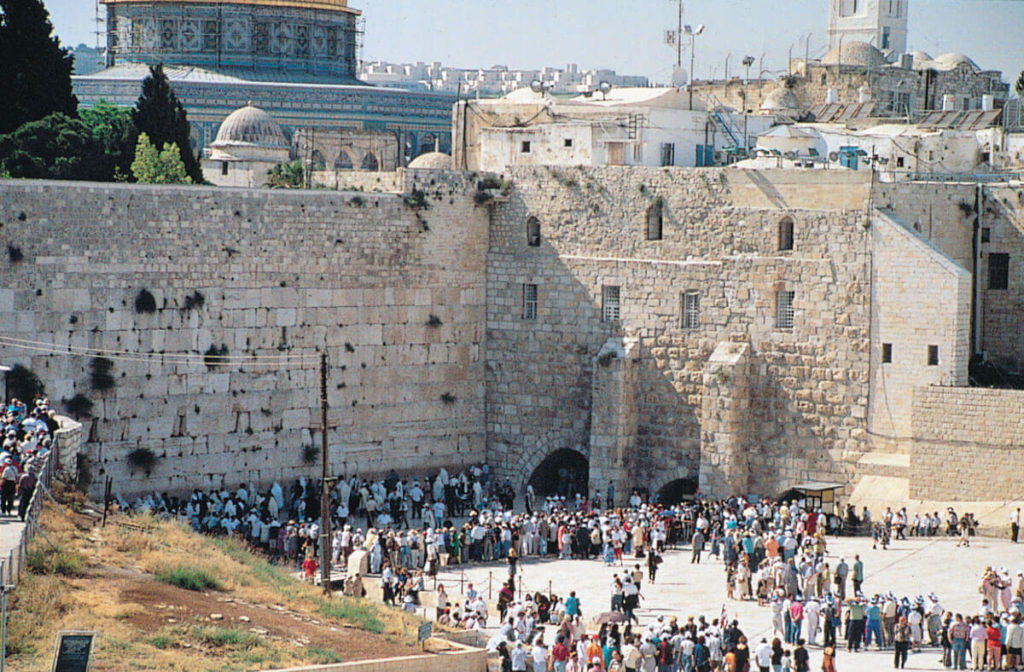
We contemporary Christians bring our own measure of worry as we become the audience of Mark 13. Nuclear arms. Climate change. AK15s, 47s. Opioids. Fake news. Hate news. The safety of those we love.
Mark 13 is often called the “little apocalypse.” The word apocalypse means revealing what is hidden. Apocalyptic writing, an ancient cousin to contemporary science fiction, became popular in the centuries when the Greeks conquered, occupied, and sometimes persecuted the Jews. As a conquered people, the Jews lacked political power.
Apocalyptic perceives the world locked in a cataclysmic struggle between the forces of good and evil. This kind of literature creates secret symbols and codes and visionary journeys into other worlds. It aims to express the hopes and faith of the powerless that good will ultimately prevail over evil.
In A.D. 70 Mark wrote the first gospel for Christians unsure of what was coming to birth, unsure of themselves, of what was good and evil, unsure of Jesus. Mark wrote to call them to faith in Jesus’ risen presence and the power of the Spirit in them, even in the worst of times.
Mark places the whole of the apocalyptic discourse in the mouth of Jesus as he sits on the Mount of Olives across the valley from the temple. His disciples Peter, James, John, and Andrew are with him and ask when the end will come and what the signs will be that it is coming.
Sunday’s gospel contains two answers to the question of when Jesus will come again. One answer is very soon, in this generation, and the second is no one knows.
Some early Christians think Jesus will come again in their lifetimes; they insist Jesus promised, “this generation will not pass away until all these things take place” (13.30).
Others insist Jesus himself did not know when the end would come. They speak the final words of Sunday’s gospel, “As to the day or hour, no one knows it, neither the angels in heaven nor even the Son, but only the Father” (13.32).
- When do you think Jesus will come again?
- What events have most changed your life?
Why is the gospel ambiguous about when the world will end? To answer that question we have to understand what a gospel is and is not. A gospel is not a news report of Jesus’ words and activities such as we expect today. No one videoed Jesus teaching in the temple courtyard.
People passed on Jesus’ teaching orally for 40 years before Mark wrote it down. As people told Jesus’ teachings and stories about Jesus, they not only passed on what Jesus said, they also used the stories to interpret current events in their lives and to answer questions he hadn’t answered.
Mark is writing in the wake of a cataclysmic event that demands interpretation — the destruction of the temple, which happened about 40 years after Jesus’ death. It coincided with Jesus’ eyewitness disciples reaching old age and with the deaths of Peter and Paul, martyred in the mid 60s. We can speculate that people who thought the end would come in their lifetimes saw signs converging in A.D. 70.
Mark recognizes a second early Christian voice in his apocalyptic chapter. This voice says only God knows when the end will come. All Christians should expect the end will be a positive experience. Jesus will come again in glory.
- What compares in your experience to Israel’s loss of the temple and its religion?
The signs of chaos Mark describes surround us — global warming, extinct plants and animals, persistent drought, oceans that teem with plastic. Hope for our future as a society and a planet can seem myopic.
However, Jesus also gives us a positive image of sap rising in the fig tree and green leaves bursting forth. Indeed we live in chaos, but what is chaos except a sign of something new emerging? What if the future is not scary, but full of hope, every day a new creation?
What signs of hope do we see? Write on the fig leaf a sign of hope you have seen today. Perhaps it is a teen who is volunteering and finding his or her passion to serve. Maybe it’s the person who always, always recycles and reuses. Or a friend who knows how to listen. These are all signs of the new world Jesus promises that love can build. It is here now, just as he is. We are working together on it.
Ilia Delio is a Franciscan sister who writes on Christ and cosmology. In her book The Emergent Christ, she encourages us to “allow the Spirit to take hold of us and liberate us from fear, anxiety, and desire for power and control. Then we can seek and find the living among the dead. We can live in the risen Christ who empowers us to participate in this new creation” (148).
God the Spirit will wake us up from our closed, perhaps mediocre, lives. The Spirit lures us into openness to new life, lures us into finding hope.
- What sign of hope do you want to be for others?
- What hope do others tell you they catch from you?
- What has come to birth for you out of change and seeming chaos?
